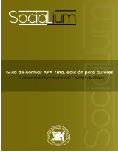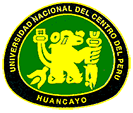Negotiation as a process
DOI:
https://doi.org/10.26490/uncp.sl.2021.5.1.812Keywords:
negotiation, games, deicision, participation, conflictAbstract
Negotiation is an activity inherent to the human being, which is carried out practically on a daily basis, even if it is not consciously internalized. In this sense, this work aims to strengthen the idea that the negotiating technique should be addressed in political, judicial and extrajudicial environments as an ideal means for the resolution of conflicts of various kinds, mainly in those where the State plays a fundamental role, as the main interest in peace, in providing for its legal order, all the mechanisms that facilitate the desidertum of a harmonious coexistence, in the context of a social contract. For this will show how discipline arises, in a transit that goes from the "Game Library", through the "Decision Library", to reach synergistically a methodology that must be contemplated in an inessible way, in every conflict addressed by man. In this sense, as a methodology we will address the bibliographic revision in its aspects, constitutional, doctrinaus and legal, in order to reach conclusions aimed at achieving justice and social balance, because, as a method, it allows the promotion of concerts that enable, for the parties, the achievement of their aspirations rationally.
References
Barragan, J. (1989). Las reglas de la cooperación. Cuadernos de filosofía del derecho. Universidad Central de Venezuela. Caracas.
Bobbio, Matteucci y Pasquino. (1981). Diccionario de política. Editorial Siglo XXI editores. Madrid. España.
Borel. (1921). La Théoric du jeu et les équations integrals á noyau symétrique. C. r. Acad. Sci., Paris. Traducción de L. J. Savage, Econométrica, 1953.
Chao P. (1975). Estadística para economistas y administradores. Editorial Herrero hermanos sucs. S.A. México.
Chou, Ya Lun (1972). Análisis Estadístico. Nueva Editorial Interamericana, S.A. de C.V. México.
Código de Planificación y Finanzas Públicas. (2002). Registro Oficial, Suplemento, 24, 22 de octubre de 2002.
Código Orgánico de Organización Territorial, Autonomía y Descentralización. (2010). Registro Oficial, Suplemento, 303, 19 de octubre de 2010.
Constitución de la República del Ecuador. (2008). Registro Oficial 449, 26.
Contreras, F. (2002). Conferencia – Investigación de Operaciones – Teoría de Juegos.
Cruz P. (2003). El liberalismo propone modelo basado sólo en el ámbito privado, Desde el campus (boletín semanal elaborado por la Dirección de Comunicación) Universidad de Piura, mayo 2003.
Del Campo, Marsal, J. y Garmendia, J. (1976). Diccionario de Ciencias Sociales. Edición del Instituto de Estudios Políticos. Redactado bajo el patrocinio de la U.N.E.S.C.O. Madrid.
Doron G. & Sened I. (2001). Political Bargaining. Theory, Practice & Process. SAGUE Publications Ltd. Great Britain.
Gardner, R. (1995). Juegos para empresarios y economistas. Editorial Antoni Bosch. Barcelona.
Hobbes, T. (1966). Del Ciudadano. Instituto de Estudios Políticos de la Facultad de Derecho de la Universidad Central de Venezuela. Caracas.
Ley Orgánica de Participación Ciudadana. (2010). Registro Oficial, Suplemento, 175, 20 de abril de 2010.
Locke, J. (1990). Segundo Tratado sobre el Gobierno Civil. Alianza Editorial – Filosofía. Madrid.
Mongernstern, Oskar. (1944). Theory of Games and Economics Behavior. Princeton: Princeton University Press.
Montesquieu y Secondat, de, Barón de la Bréde, Carlos Luis. (1748). El espíritu de las leyes. Traducción de Pedro Bravo Gala. Cuarta Edición. Alianza Editorial. Madrid. España.
Munné, F. (1992). Psicología del tiempo libre: un enfoque crítico. Trillas, México.
Naím, M. (2016). El fin del poder. Editorial, LIBROS EL NACIONAL. Caraca.
Platón: Las Leyes. Editorial Gredos (Biblioteca Clásica Gredos 265). Madrid. 1999.
Requejo, C. (1994). Las democracias: democracia antigua, democracia liberal y Estado de Bienestar. Editorial Ariel, S.A., Barcelona.
Rubinstein, A. (1982). 'Perfect Equilibrium in a Bargaining Problem' Econométrica, Vol. 50.
Tversky, A. (1969). The intransivity of preferences. Psychological Revew, 76.
Von Neumann, J. (1928). Zur Theoric del Gessellschaftsspiele, Math. Ann.
Downloads
Published
Issue
Section
License
Copyright (c) 2021 Silvio José Castellanos Herrera

This work is licensed under a Creative Commons Attribution 4.0 International License.








.jpg)















